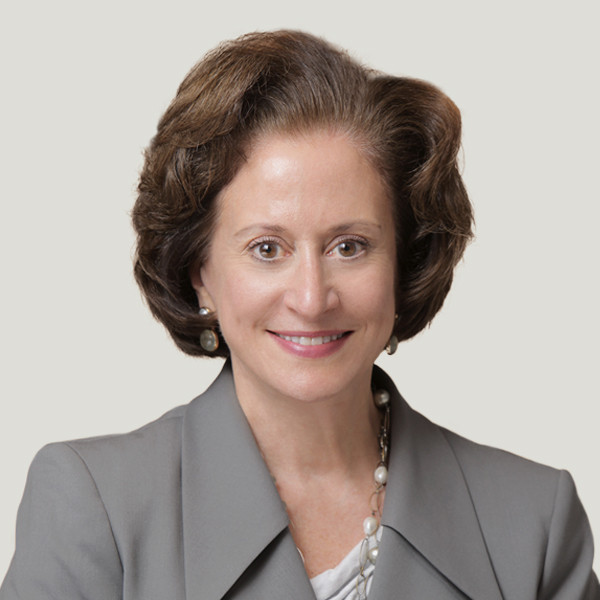William Pitt Fellows’ Virtual Roundtable 2022 - Trends and Power in Environmental Leadership
Early in July, the Corporate Partnership Programme convened our William Pitt Fellows and Corporate Partners for our second virtual Roundtable. Introduced by the Master, Lord Chris Smith, and Chaired by Corporate Fellow Dr Simon Learmount we were joined by Pembroke Fellow Dr Anil Madhavapeddy and distinguished guest Annette Nazareth to discuss ‘Trends and Power in Environmental Leadership’. The virtual Roundtable is a new annual exclusive event for our Corporate Partners that exposes them to the diverse thought-leadership at Pembroke and is a chance for them to meet each other, but it also helps our academics connect to the corporate world. Speaker Annette Nazareth, Chair of the Integrity Council for the Voluntary Carbon Market and Senior Counsel at Davis Polk & Wardwell, shares her experience of participating in the Roundtable.
The news headlines are telling us what the science has already made clear: Every point of a degree matters, so every tonne of carbon in the atmosphere matters. We are already dealing with the devastating impacts of climate change, and we are rapidly running out of time to secure a liveable future. And that means every tool to mitigate climate change also matters.
In recent weeks we have seen unprecedented wildfires in Alaska and more than 100 million Americans under heat warnings. Dozens of houses in London gutted by fire, in what the city’s fire service says was its busiest day since the Second World War, while the wider UK experienced its hottest day ever, melting roads and runways and forcing much of the the rail network to close. Fire crews in southern France were ‘going into battle’ with wildfires. An intercity train in Spain was pictured with acres of forest burning on each side of the tracks.
Our house is on fire and it is one of the clearest markers yet of the climate emergency ceasing to be an ephemeral future state. We need every tool available working at full speed to channel investment towards keeping the global temperature within 1.5°C, in line with the goals of the Paris Agreement.
The voluntary carbon market (VCM) is one of those tools and it is where I am trying to make a positive difference.
Governments and philanthropies cannot achieve this on their own. Mobilising private capital will be a deciding factor in whether we achieve this goal.
High-integrity carbon credits can unlock urgently-needed finance that would not otherwise be available to reduce and remove billions of tons of emissions that would not otherwise happen, particularly in emerging markets.
Earlier this month – just as those firestorms and record temperature warnings began to hit the headlines – I joined the 2022 William Pitt Fellows’ Virtual Roundtable, hosted by Pembroke College.
I usually find these events both hugely useful (discussions, connections, digging into ideas in an open forum) and a little depressing (we should not need to be talking about this any more!)
Our chair Dr Simon Learmount positioned three areas for intervention to counteract shortcomings in global political will and a lack of momentum. He pointed to leadership through business, through international collaboration, and through individual action and storytelling.
If you are reading this, you probably know I chair the Integrity Council for the Voluntary Carbon Market. We are trying to get that tool I mentioned above, the voluntary carbon market, working effectively.
But it will only deliver on its promise if it is rooted in high integrity.
A key point to understand about the voluntary carbon markets is that it is – as the name suggests – voluntary. It is driven by private sector actors, and is not regulated by governments or financial authorities. But unregulated should not mean fragmented or opaque, and it certainly should not limit the potential of the market to contribute as fully as possible to securing a liveable future for the planet and everyone on it.
That is why, in designing an effective market that can deliver genuine climate impact at speed and scale, we need to start with integrity. It is a pre-condition for a transparent, deep, liquid, standardised and scalable market that efficiently channels capital to where it is most urgently needed. Markets and integrity have to go hand in hand.
This is our top priority at the Integrity Council. We are working to establish a credible, rigorous, and readily accessible means of identifying high-quality carbon credits that create real, additional and verifiable climate impact with high environmental and social integrity.
We have just issued our draft Core Carbon Principles (CCPs) and Assessment Framework for public consultation, which are designed to establish a definitive and consistent benchmark for high-integrity carbon credits, based on solid science and best practice; assessing carbon-crediting programs and credit types against that benchmark; and clearly identifying those that meet it.
Our goal is to build a widely-shared understanding of what high integrity means for carbon-crediting programs and credit types in a framework that is workable and establishes a clear pathway for continual improvement, based on shared learning, evolving science and practices, technological innovation and market developments.
This will underpin trust in the integrity of carbon credits, unlock urgently-needed private capital and channel it efficiently towards real climate impact at speed and scale.
If we build integrity, scale will follow and the voluntary carbon market can help accelerate the uptake of emerging technologies, and protect and promote nature and biodiversity. It can also put vital funding into the hands of Indigenous Peoples and local communities (IPLCs) who are critical stewards of many key carbon sinks.
And that means the voluntary carbon market can reach its full potential in support of the goals of the Paris Agreement and the Sustainable Development Goals.
One of my fellow panellists was Dr Anil Madhavapeddy, associate professor of computer science and co-founder of the Cambridge Centre for Carbon Credits (4C). Anil and colleagues have found huge variations in the price of carbon credits, due to a lack of quality standards and clear navigation ‘labels’. Anil talked us through some of the ways 4C is using computer science to help with quantifying, tracking, and standardising the impact of credits, which is a welcome and necessary area for development.
Communication is also going to be critical. We need people like activist, filmmaker and Pembroke College student, James Miller, who joined the panel to show how storytelling can help communicate a sometimes complex message to the public, politicians, and businesses.
Engagement and co-creation are going to be critical in solving the climate crisis. We need people from all walks of life and every corner of the globe to come together and collaborate to build the solutions we need to accelerate a just transition to 1.5. So come to the table with solutions. Join us, and together we can build a better future and keep 1.5 alive.
Huge thanks to Pembroke College for inviting me to join such a great group of people. You can find more information on the Integrity Council here and 4C here.
Senior Counsel at Davis Polk and Wardwell and Chair of the Integrity Council for the Voluntary Carbon Market.
Annette L. Nazareth currently serves as the Chair of the Integrity Counsel for Voluntary Carbon Markets (IC-VCM), the governance body launched by the Taskforce on Scaling Voluntary Carbon Markets, where she served as Operating Lead. She is a Senior Counsel at Davis Polk & Wardwell, where she previously headed the firm’s Washington, DC office and led the firm’s Trading and Markets practice within the Financial Institutions Group. Annette was a key player in U.S. financial services regulation for nearly a decade, having served as a Commissioner of the U.S. Securities and Exchange Commission and as the Director of the Division of Trading and Markets. Earlier in her career she had senior legal roles at several investment banks.

